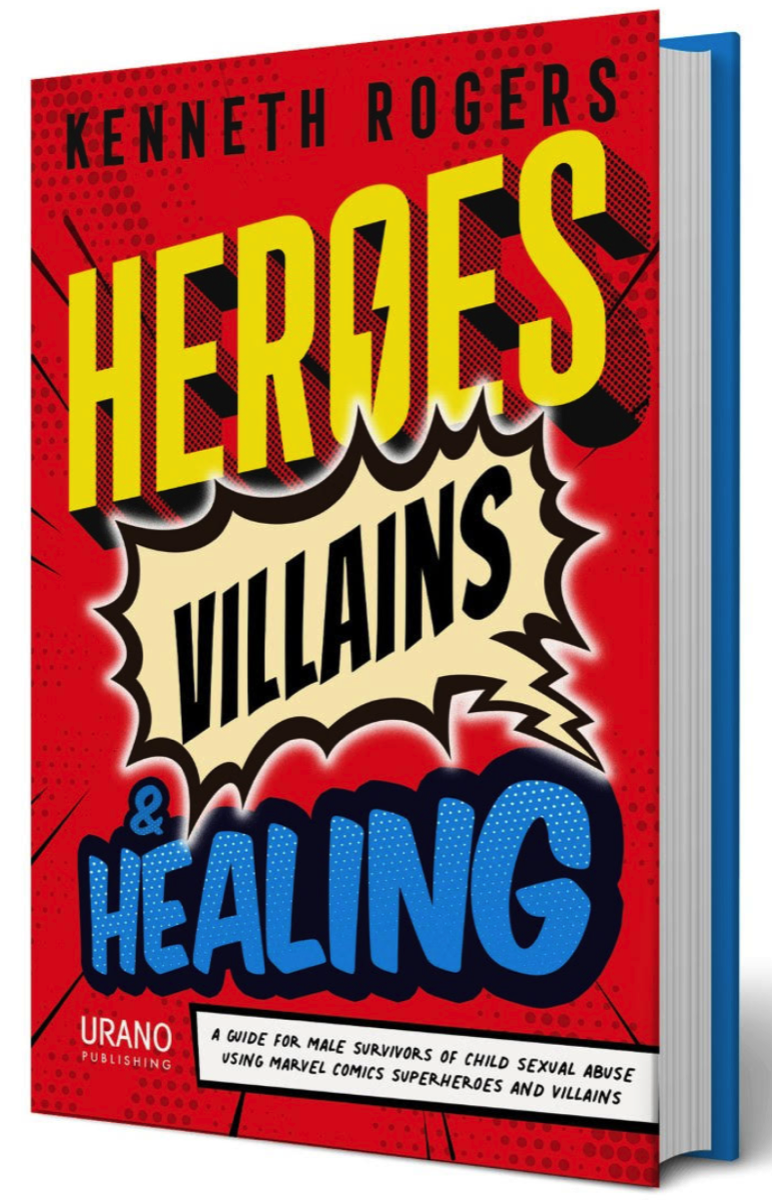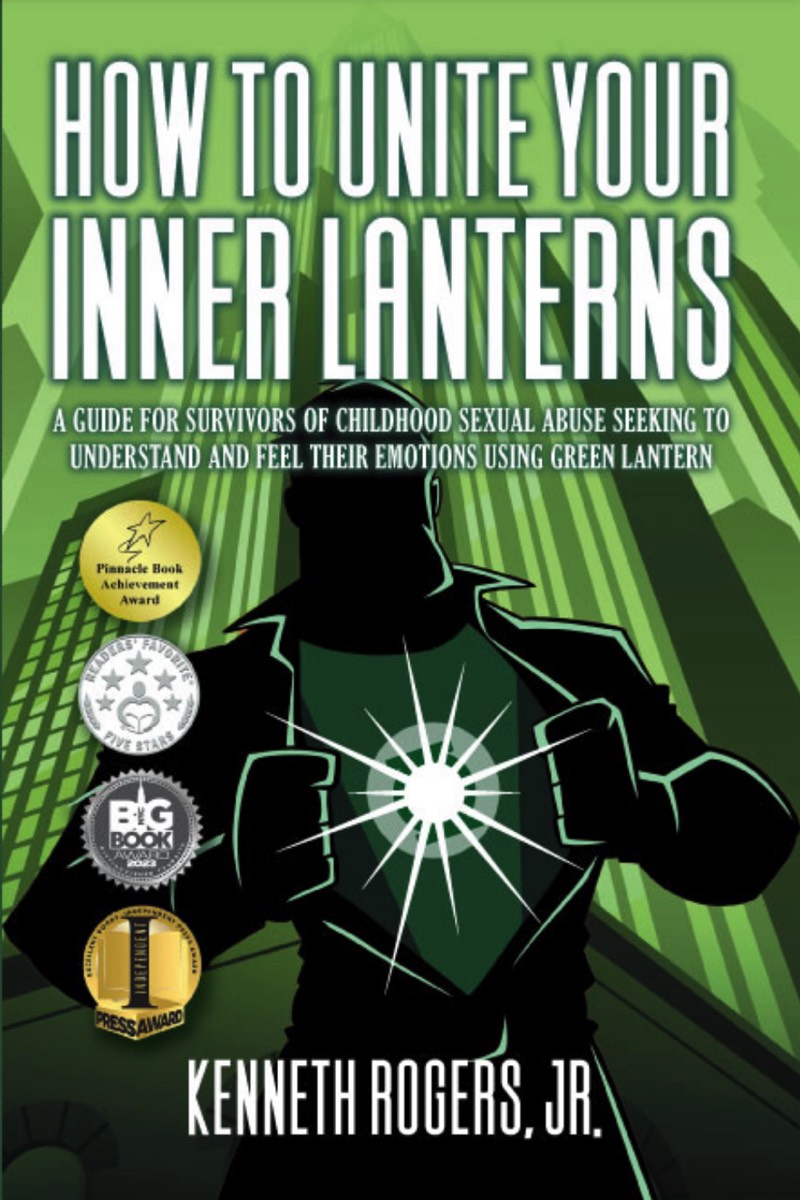Why Write for Male Survivors?
For a long time I felt alone.
These guides explain how I use superheroes to help heal my childhood trauma to become a better father, husband, and teacher.
My goal is to help other men and survivors heal and know they are not alone.
Let their stories and mine help guide you toward healing.
Heroes, Villains, and Healing: Marvel Edition
One in six males will be sexually abused in their lifetime. Unfortunately, this statistic is often ignored or not believed, making male survivors feel alone and perpetuating the cycle of abuse. Heroes, Villains, and Healing sheds light on this problem, allowing male survivors to know they are not alone. This guide was written to help male survivors face their trauma and realize they are neither a hero nor a villain, but, instead, human capable of growth, forgiveness, and healing.
How to Unite Your Inner Lanterns
Kenneth Rogers, Jr. combines psychology, the Green Lantern comics characters, and his own personal journey to help survivors of childhood sexual abuse move through the healing process.
Using the specific therapy theories of Internal Family Systems and Dialectical Behavior, the author hopes to assist others who suffered abuse in reconnecting with their suppressed emotions, so they can achieve balance in their lives.
Rogers uses superheroes to help survivors understand complex psychological theories through his How to Heal Your Inner Superhero series. This is his thirteenth book and the sixth in the series.
How to Unite Your Inner Lanterns uses the stories and characters of Green Lantern to help abused survivors gain access to their full spectrum of emotions, and to achieve the balance and introspection needed to become a White Lantern.
“In brightest day, in blackest night, no evil shall escape my sight. Let those who worship evil’s might, beware my power, Green Lantern’s light.” – Green Lantern Oath
How to Slow Your Inner Flash
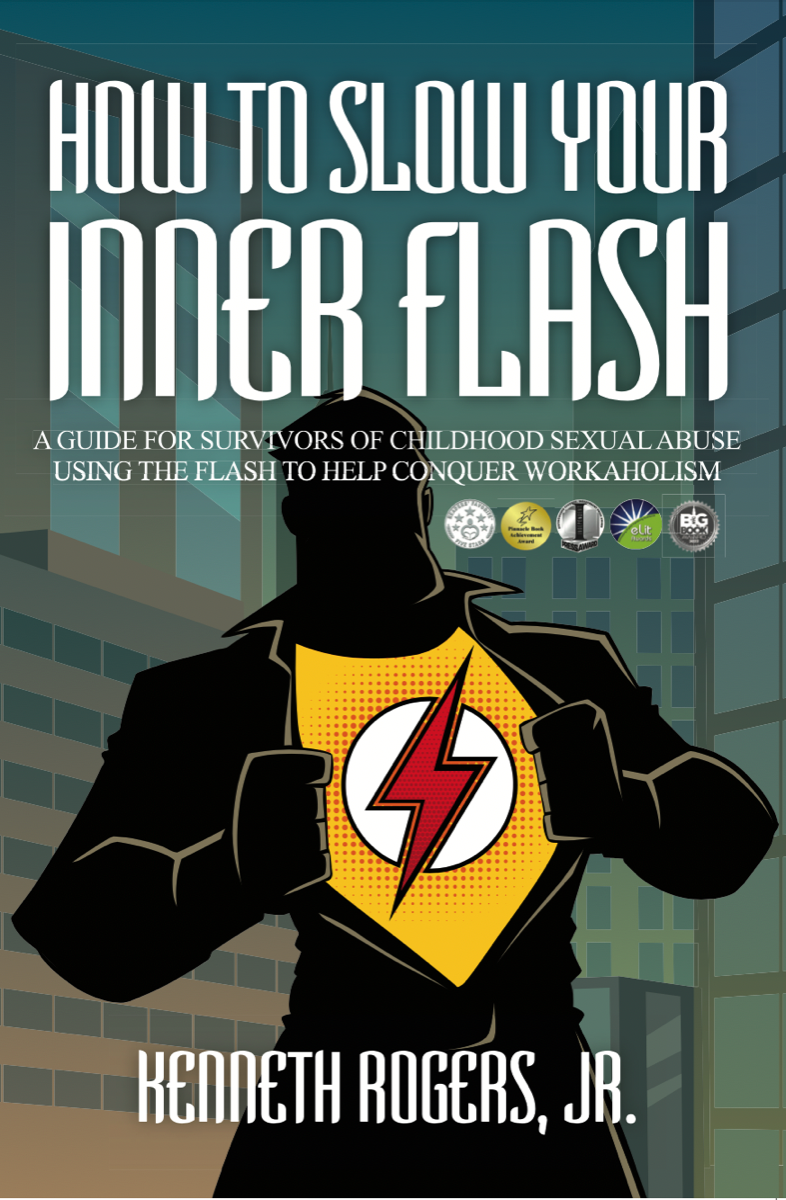
Using characters from DC comics "The Flash" (such as hero Barry Allen and villain Reverse Flash) as an extended metaphor, this guide helps male and female survivors understand what it means to be a workaholic, survive hedonism and imposter syndrome, and tells how everyone has the potential to become a pessimist without proper healing.
Similar to other guides in the How to Heal Your Inner Superhero series, this book helps survivors understand that the only way to overcome the need to rely on these coping mechanisms is by recognizing their own cognitive distortions, and by reframing their negative automatic thoughts to slow and heal their inner Flash.
This is the author's twelfth book and the fifth in the How to Heal Your Inner Superhero series.
Available in softcover and audiobook at:
How to Save Your Inner Wonder Woman
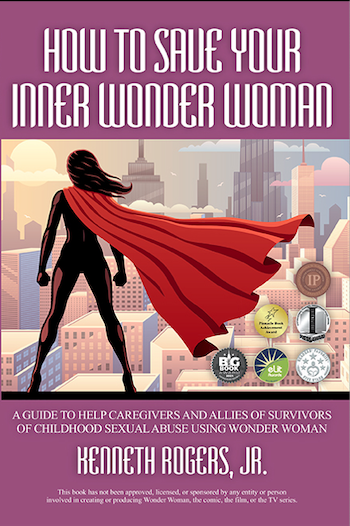
How to Save Your Inner Wonder Woman is a guide for partners, allies, and caregivers of childhood sexual abuse survivors. It uses the DC comic book superhero Wonder Woman to heal compassion fatigue.
With Wonder Woman as an extended metaphor, the reader is taken on the Healing Journey of the Caregiver to learn the strategies needed to practice trauma stewardship in the midst of understanding and helping male and female survivors heal from the trauma of their childhood sexual abuse.
Available in softcover and audiobook at:
How to Master Your Inner Superman
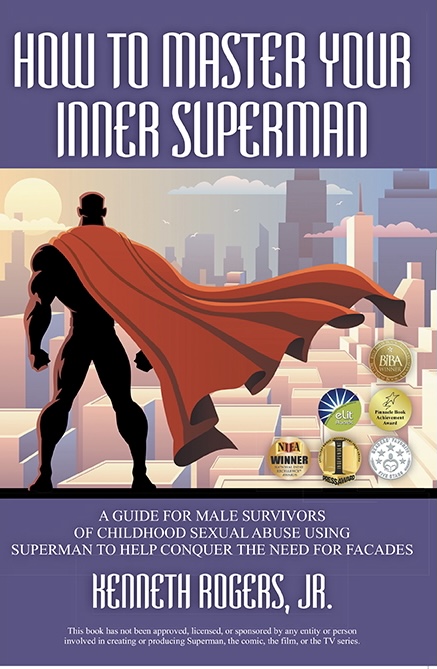
How to Master Your Inner Superman uses the DC comic book superhero, Superman to help male survivors of childhood sexual abuse understand and heal from their childhood trauma.
This self-help guide explores the use of internal family system therapy, cognitive behavior therapy, and dialectical behavior therapy to conquer the need to cope with the trauma of childhood sexual assault through the use of living life behind the facade of a false identity.
Kenneth Rogers uses writing exercises, his own autobiographical stories, and the different identities of Clark Kent', Superman, and Kal-El throughout DC comic books as an extended metaphor to help guide male survivors toward understanding how to save their inner Superboy and heal their childhood sexual abuse.
How to Kill Your Batman
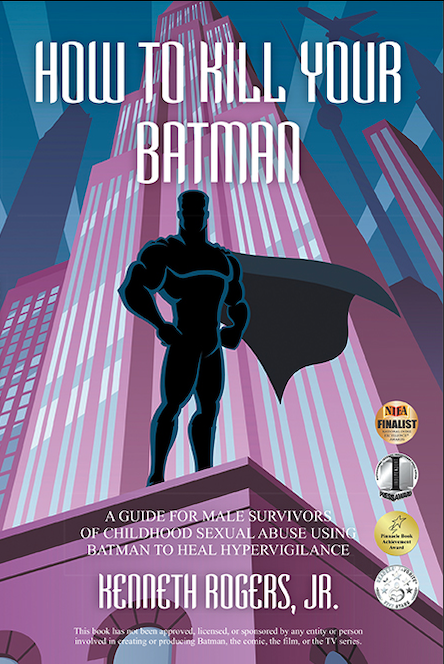
How to Kill Your Batman uses the character Batman to help heal male survivors of childhood sexual abuse.
Using material from his previous award-winning self-help book, Heroes, Villains, and Healing: A Guide for Male Survivors of Child Sexual Abuse Using DC Comic Superheroes and Villains, author Kenneth Rogers, Jr. This time focuses on the character Batman, to help male survivors understand the pitfalls of hypervigilance after being sexually abused.
The trauma of childhood sexual abuse is related to the childhood trauma in Batman’s story, when a young Bruce Wayne witnesses the death of his parents. In the first part of the book, the author explores the term “Boy Code” and the societal norms of being a “real” man.
In part two, the harms of hypervigilance are explained, using Batman and the development of cognitive distortions by male survivors as a result of being sexually abused.
Part three helps survivors understand how to “kill their Batman,” allowing them to explore the need for intimacy and healing rather than hypervigilance. Throughout each part, Kenneth includes autobiographical stories of his own struggles with hypervigilance as a sexual abuse survivor striving to heal, grow, and become a “good” man rather than a “real” man.
Heroes, Villains, and Healing
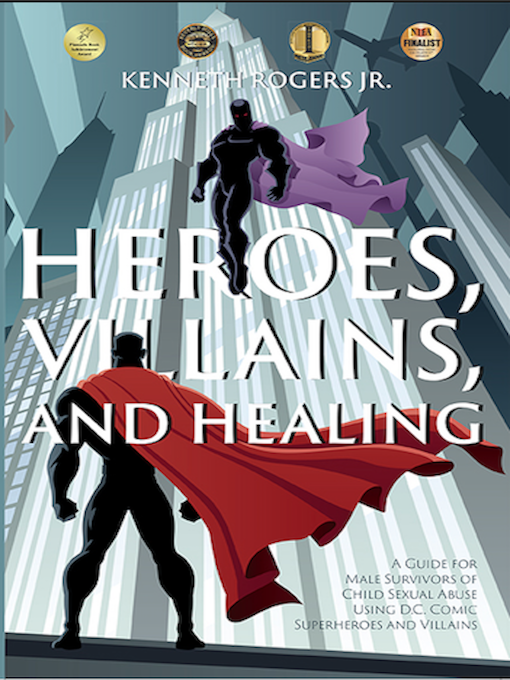
OVER 1200 COPIES SOLD & WINNER OF 4 NATIONAL INDIE BOOK AWARDS!
1 in 6 males will be sexually abused in their lifetime. This fact is often ignored or not believed.
Heroes, Villains, and Healing is a guide to help male survivors of childhood sexual abuse understand and heal from the trauma of their past using DC Comic Book superheroes and villains.
This helpful book is divided into three parts. The first is "Heroes," which explains how some coping strategies of male survivors are similar to the archetypes of such DC superheroes as Superman, Batman, and the Flash.
The second part, "Villains," examines how other coping strategies may not be as positive, having traits and attitudes of villains such as Lex Luthor and the Joker.
"Healing" is the final part, which explains how striving to live the life of a hero or a villain can be sustainable. To truly heal from childhood sexual abuse means working through the stages of healing and receiving help from a therapist or counselor. This final section includes writing exercises and examples that help male survivors know they are not alone, as they come to terms with their abuse and heal from past trauma.
The book was written to help male survivors open up about their abuse, seek help, and stop suppressing their trauma through drug and alcohol abuse, or suicide.
Raped Black Male: A Memoir
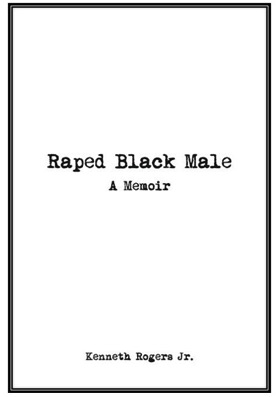
Raped Black Male tells my story of being homeless and struggling to overcome depression while coming to terms with being sexually assaulted by my sister at age eight. Beginning in my middle school years, the novel weaves its way through the '90s to present day, as the stress of exceeding expectations of what it means to be a black male and the crippling unspoken belief that says (without saying) - it's impossible for a man to be raped - has forced one mental breakdown after another, resulting in thoughts of suicide. This memoir is filled with depth, humor, and honesty about the reality and myth of what it means to be a black male (not all of us can handle a basketball or football), while explaining the burden and responsibility each assigned title has had on my life, the way I prepare my seventh grade students to enter the world, and the way my shattered thoughts have forced me to interact. Using original journal entries written during my early life, each page is inspirational and told from the heart. About the Author: Kenneth Rogers Jr.'s first book Thoughts in Italics is a book of short stories published in 2008. His first novel, Writing in Margins, focuses on mental health through a character able to manipulate events with whatever he writes in his journal. His second novel, Sequence, is science fiction and the winner of the Next Generation Indie Book Award and the NABE Pinnacle Achievement Award in science fiction. His latest book, The Diary of Oliver Lee, is the first in the Chronicles of the Last Liturian trilogy. He is the father of two girls and an inner city teacher of humanities in Baltimore, Maryland.
